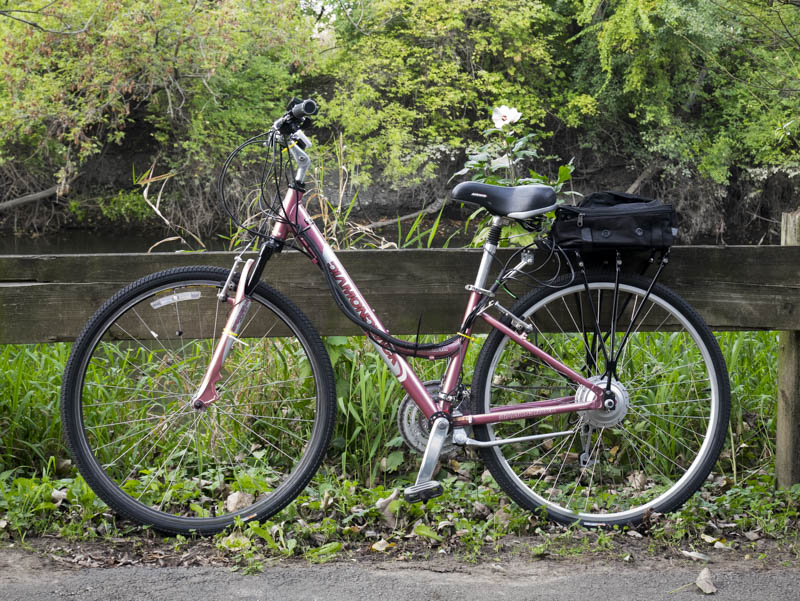Key things I'm looking for:
• Capable of higher speeds if needed (e.g. 28mph), cruising speeds would realistically be closer to 23-25mph
• High range. My in-town needs are 10-20mi round trip, but there's lots of places I'd like to try the e-bike for that are 30-50mi round trip, especially as I don't own a car.
• Low maintenance, or maintenance that I can do myself. I'm used to riding my bike and doing my own normal bike maintenance already
• Torque sensor is non-negotiable. I've tried riding a few cadence-only bikes and it was awful.
• Prefer direct drive, but will tolerate geared I think. No interest in mid-drives, too much maintenance and I didn't find much real world evidence of efficiency over modern hubs
• Most of the areas I'm riding are semi-flat, but there's a few routes that are extremely steep, prolonged grades (I live near the mountains, and there's almost no transition between flat plains and thousands of feet of elevation gain).
• Misc: medium sized bikes, I'm more familiar with mountain/cross style
Budget isn't set in stone, but I'd like to keep it between $2K- $3K.
I've done some initial pricing on a DIY approach, and was surprised to find the price ends up being similar to the CCS with the 19Ah battery ($2K), especially since I don't have an existing bike (that I'm willing to convert).
My question: does it make more sense to go the DIY route? I really like the CCS and suspect it's actually cheaper for what I want, but I'm worried about being able to do my own maintenance and replacements on it in the future.
• Capable of higher speeds if needed (e.g. 28mph), cruising speeds would realistically be closer to 23-25mph
• High range. My in-town needs are 10-20mi round trip, but there's lots of places I'd like to try the e-bike for that are 30-50mi round trip, especially as I don't own a car.
• Low maintenance, or maintenance that I can do myself. I'm used to riding my bike and doing my own normal bike maintenance already
• Torque sensor is non-negotiable. I've tried riding a few cadence-only bikes and it was awful.
• Prefer direct drive, but will tolerate geared I think. No interest in mid-drives, too much maintenance and I didn't find much real world evidence of efficiency over modern hubs
• Most of the areas I'm riding are semi-flat, but there's a few routes that are extremely steep, prolonged grades (I live near the mountains, and there's almost no transition between flat plains and thousands of feet of elevation gain).
• Misc: medium sized bikes, I'm more familiar with mountain/cross style
Budget isn't set in stone, but I'd like to keep it between $2K- $3K.
I've done some initial pricing on a DIY approach, and was surprised to find the price ends up being similar to the CCS with the 19Ah battery ($2K), especially since I don't have an existing bike (that I'm willing to convert).
My question: does it make more sense to go the DIY route? I really like the CCS and suspect it's actually cheaper for what I want, but I'm worried about being able to do my own maintenance and replacements on it in the future.
Last edited:




